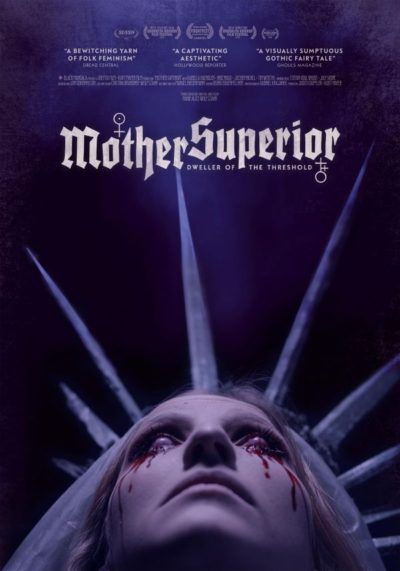
Rating: D+
Dir: Marie Alice Wolfszahn
Star: Isabella Händler, Inge Maux, Jochen Nickel, Tim Werths
If you didn’t get your yearly mandated quota of cinematic patriarchy-bashing from Barbie, then feel free to top it up here. Bonus points, because it’s Nazi patriarchy-bashing. For the heroine here is Sigrun (Händler), who was spawned during the war as part of the S.S.-initiated Lebensborn program, intended to increase the number of nice, Aryan babies. She’s never quite been able to track down her biological parents, but thirty years later has finally got a lead. She takes a job as a nurse to the fragile and old Baroness Heidenreich (Maux). The aristocrat was one of those who ran the program, and still has documents relating to it on her estate.
I dunno. I’d have shredded anything connecting me to a shady Nazi eugenics campaign sehr schnell at the war’s end. That’s just me, I guess. Fortunately, they’re still there, and found by Sigrun with remarkable ease, probably because the Baroness sternly warns her during their first meeting, not to go into the abandoned wing of the house. No prizes for guessing the extent Sigrun obeys those orders. It’s about as subtle as the makers naming the place Rosenkreuz Manor. Anyone with the slightest interest in mysticism will be rolling their eyes at that. Might as well call it “Occult Rituals R Us” and be done with it. For that’s what proves to be going on. The Baroness is not quite as feeble as she appears, though her “coven” largely consists of her and handyman Otto (Nickel). Bit crap, really.
 This is nicely enough photographed (top), even if the efforts to compare this to Suspiria are not plausible in the slightest. The performances aren’t too bad either. It’s just the lack of a decent story which condemn this to the level of largely uninteresting. The structure may not help: it unfolds in a local police station, where Sigrun is being interrogated about the suspicious death of the Baroness, and unfolds in flashback from there. Though there’s good reason to doubt her reliability as a narrator. The film later decides to shoehorn in a friend for Sigurd – Wilfried (Werths) – who may or may not be a boyfriend, but is, for sure, entirely superfluous.
This is nicely enough photographed (top), even if the efforts to compare this to Suspiria are not plausible in the slightest. The performances aren’t too bad either. It’s just the lack of a decent story which condemn this to the level of largely uninteresting. The structure may not help: it unfolds in a local police station, where Sigrun is being interrogated about the suspicious death of the Baroness, and unfolds in flashback from there. Though there’s good reason to doubt her reliability as a narrator. The film later decides to shoehorn in a friend for Sigurd – Wilfried (Werths) – who may or may not be a boyfriend, but is, for sure, entirely superfluous.
At least his presence does break up what feels like endless scenes of the heroine staring at documents, as the film meanders its way towards a “twist” which may provoke further eye-rolling. The concept of a gynocentric arcane order, seeking to depose Hitler – not so much because he was evil, but because he was a man – is an interesting one. Having it quietly survive decades after the war, and make plans to continue beyond the life of its leader is, similarly, one with potential. Almost none of it ends up on the screen, with the movie being more interested in… Well, I’m not quite sure what. Despite being a mere 71 minutes, this still managed to outstay its welcome. “Is this an art-house film?” snorted Chris derisively in the middle. She had a point.
